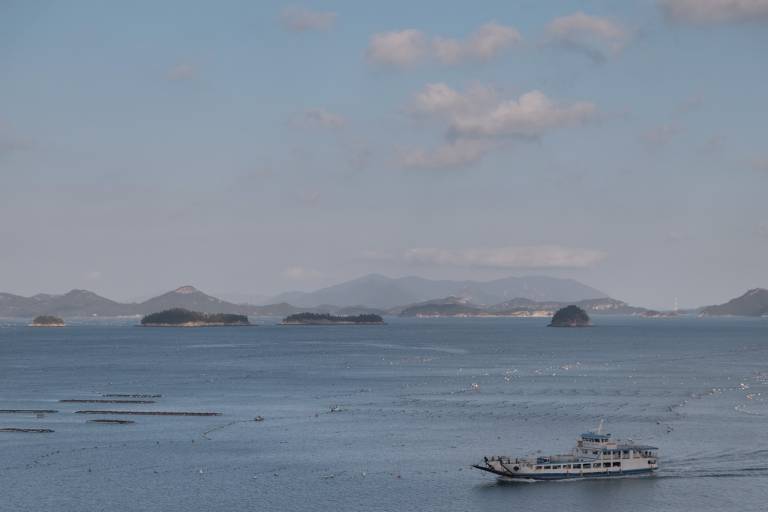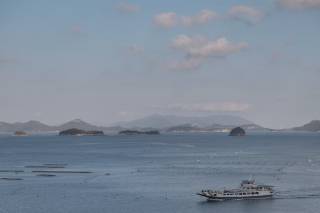I am starting to write these notes on my second day off of doing the kelp farm after I got used to the exhausted feelings and tiredness of doing the kelp farm. I got official days off after 8 days of working with one day off due to the rainy day. Sunyoung–the artistic director of Songs of the Wind helped me to negotiate this situation.
I am doing the Kelp Farm in Yaksan-ro, Wando, Jeollanam-do, South Korea under the program called Song of the Wind, a first residency program directed by Sunyoung OH. I am here with my other co-residents Christine, Marco, and Vincent. We are staying in a community center that has been reconstructed into a residency house with one shared kitchen and dining table, two bunk bedrooms, and two shared bathrooms.
On the first day of working, I was in big doubt about whether I could finish the whole month of kelp farming. Definitely, those feelings came from how I found my body following the process difficult. I got sore my whole body. I got sleepy from waking up at 4 am and start to work at 5 am every day. Till the third day, I am still figuring out whether to continue or to stop. Until I decided to continue when I got an offer to get days off in the middle of working days. This was a big deal for me who is struggling with the working rhythm and physical endurance.
I am working with other seven co-workers from Thailand, they seemed to know each other before. I could catch the sense from how they interacted, made a joke, and show the familiar gestures to each other. I do not speak Thai and Korean, meanwhile, some of them speak both languages. It created a feeling of alienation till I knew a way how to communicate other than language but through my mistakes during work or my innocent responses to their (look-alike) joke gestures.
Sangjangnim, Samonim, and the Working Team
Farming involves teamwork instead of individual work. Or it could be an individual work but it takes longer and in a smaller farm. Labor will decide on how big the farm that you can work on and how long the time that you need to work. As well as in kelp farming. Kelp is a seasonal plant that has seven months life cycle and the harvest month comes in summertime. The duration of farming only happens for a month before the fall season comes. This short duration of harvest is determined by labor division and the working dynamics.
As the harvest duration is limited, the farmer needs to divide a working task into several labor divisions. Therefore, as wide as the farm is, as many workers they should have. They can not save money by reducing the worker and doing by themself unless they will miss a season. The workers are various migrant workers such as from Russia, Thailand, Vietnam, and Kazakhstan, specifically for this summer kelp farming season.
My boss seems like a typical common wealthy family. They have luxury cars and wear gold necklaces as well as the well-known international brand that I am familiar with. Those are the easier indicators to show how much wealth someone is. Even, though not all wealthy family is choosing that way as their wealth identity, at least I could estimate how much money they need to pay for buying all those things. Furthermore, almost every day, they serve meaty dishes for all workers, including me. For me who is growing up in an Indonesian middle-class family that saw meat as a luxury dish and as not as a daily food, this became an unpredictable moment when I could eat meat till I feel like want to say “no” when they offered me. From this routine, I could affirm that the food should be something that she does it passionately.
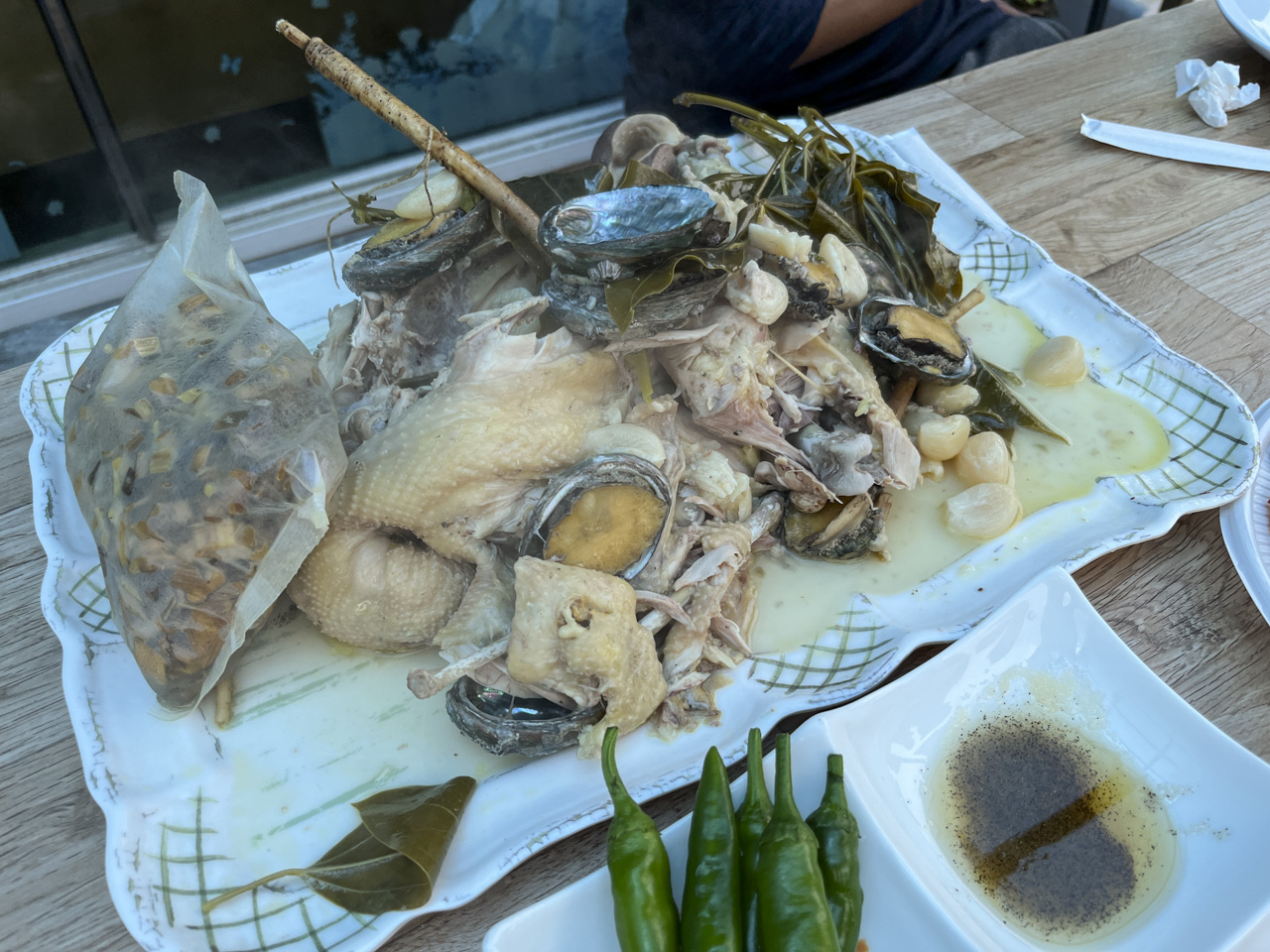
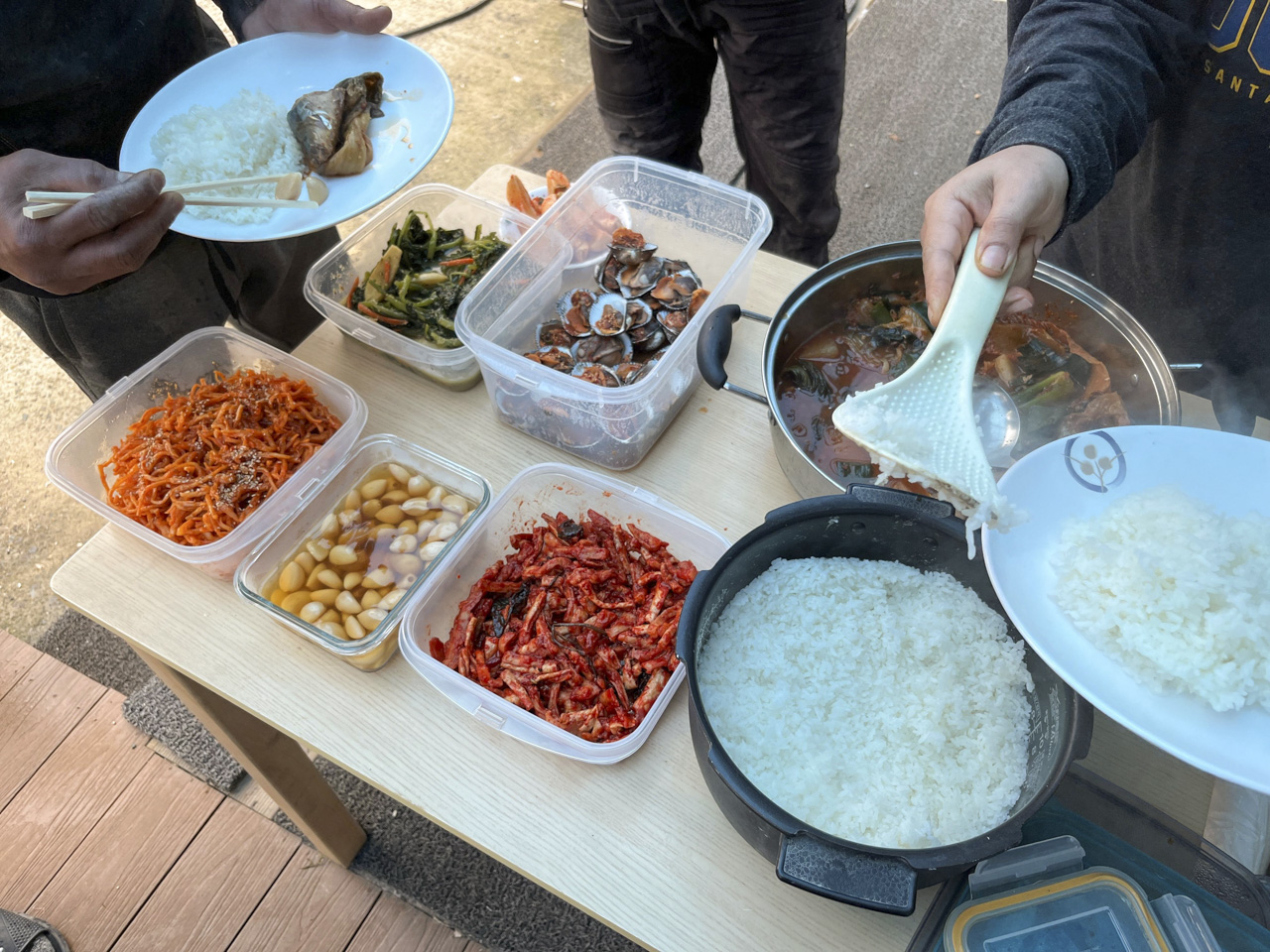
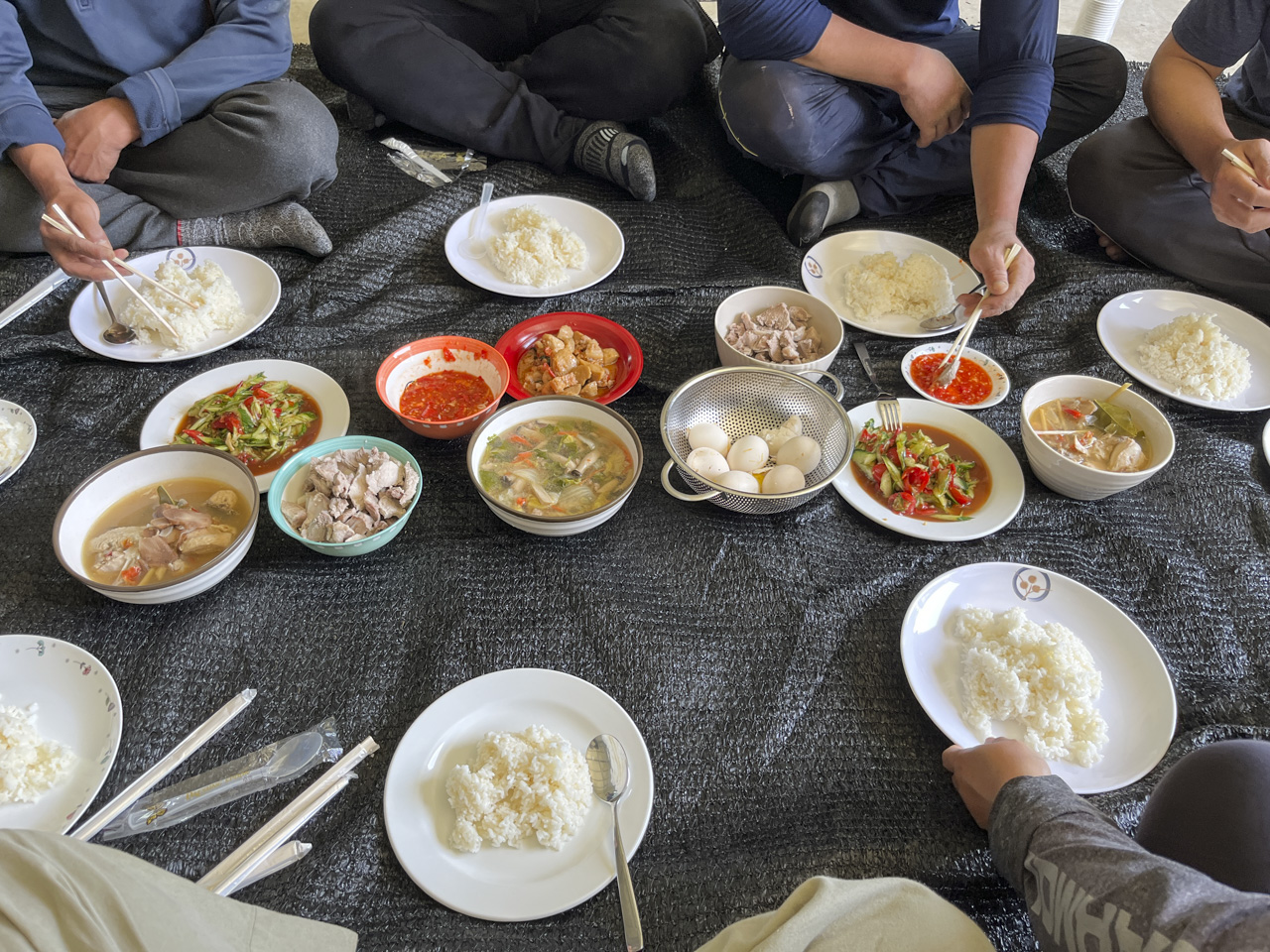
Going back to the daily routine of working, we started work at 5 am and ended at 6 pm. We did various works and we do not have any regularity on what the first work that has to be done, it depended on what the last work that we have done in the previous day. We could start by putting all the fresh wet kelp into the field to make it dry, with dried kelp packing, or with first quality control of the kelp which is put on the field. In this series work of kelp farming, quality control has several stages, what I meant with the first quality control is working to make sure that none of the kelps are folded or glued to each other. Then, we continued to do other work depending on how much kelps are coming from the sea. I am not working on the sea to cultivate the kelps due to my type of visa which is not allowing me to do that certain job. If there are no kelps coming, then we could pack the dried kelp or clean the rope which will use as the seeding kelp for the coming season.
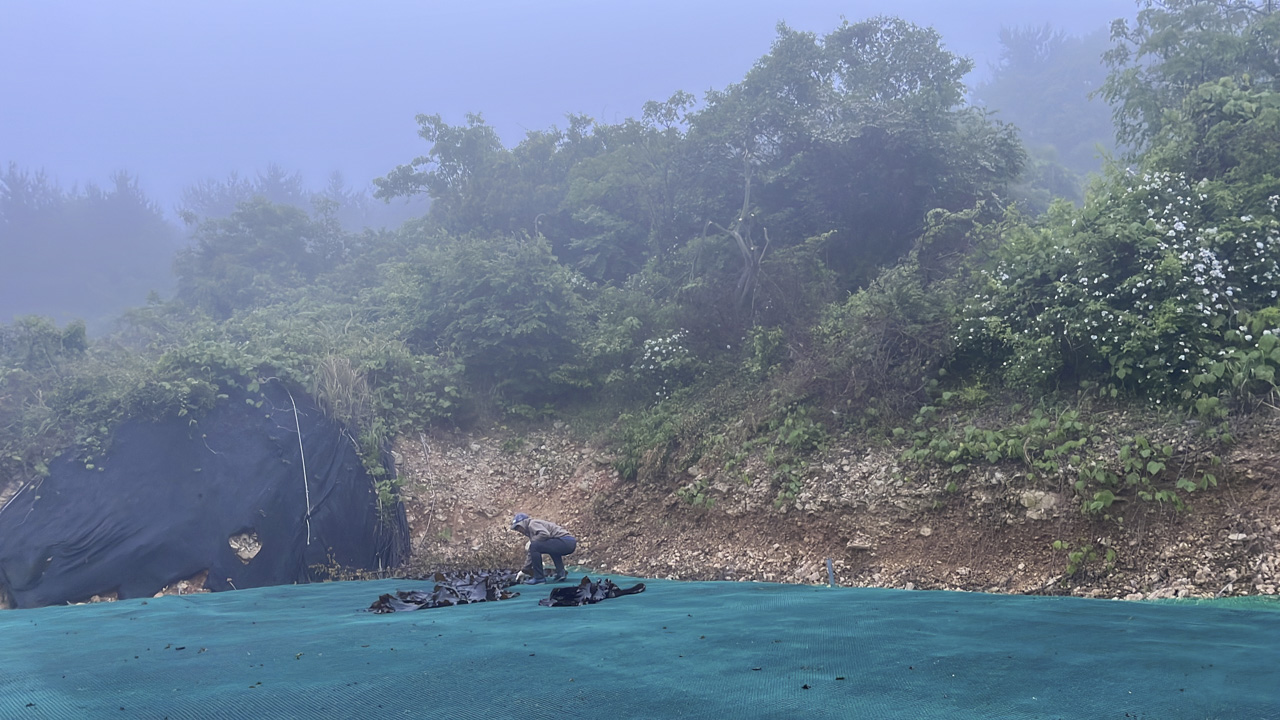
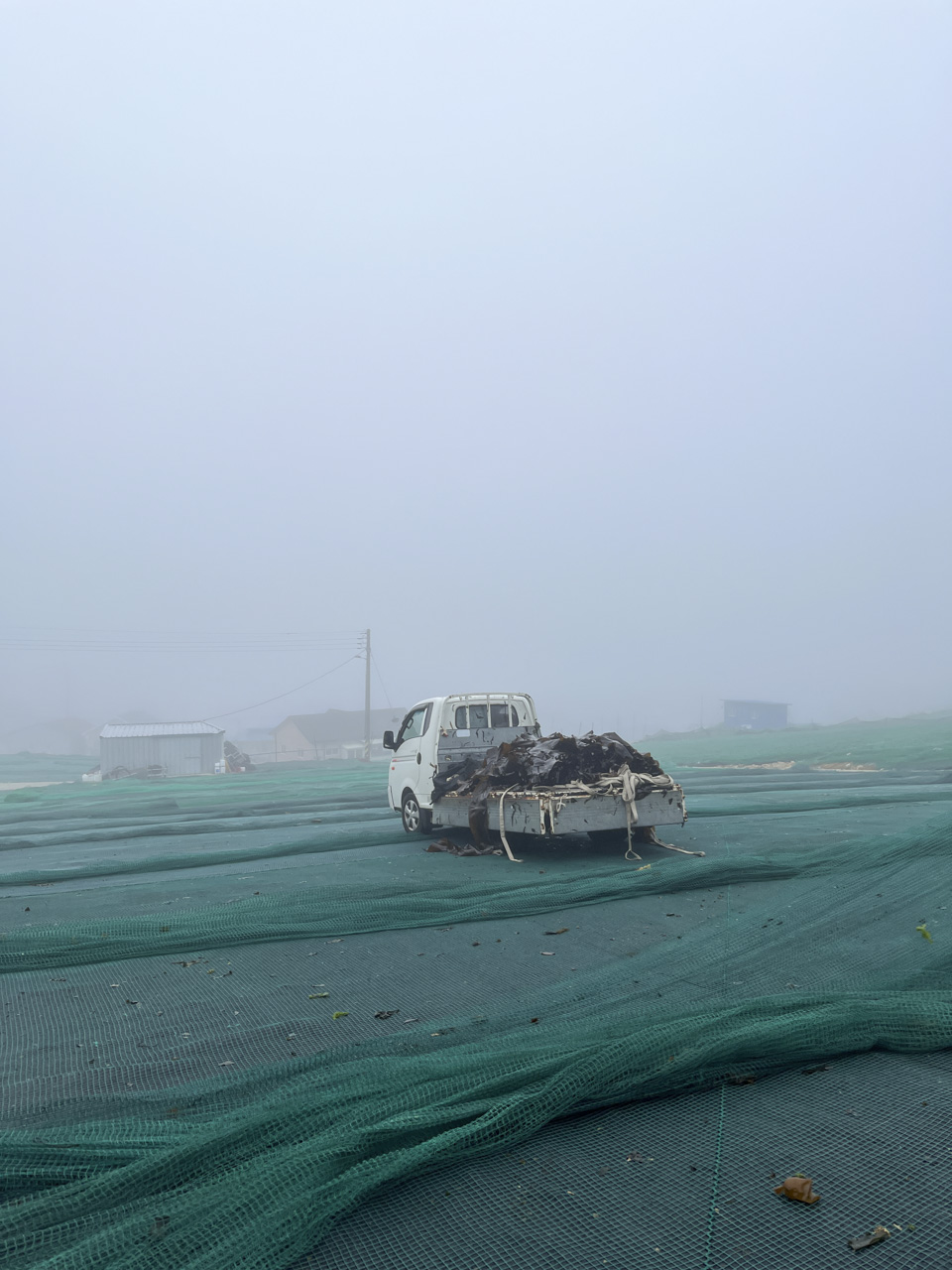
As an unskilled laborer, I could affirm myself as the slowest worker. I did not know what should I do and I could not speak either Thai or Korean. Furthermore, I followed the other workers with some mistakes and missed understanding. After I did many mistakes during work, other Thai workers helped me quietly or warned me politely. One example is when I got the wrong direction to put the kelp, one of the workers came to me and just showed me the right direction. I felt like in a running competition. Everyone was super fast and rigid. Meanwhile, I was trying so hard to get understand all the tasks. After one day of working, I could understand the reason why I should be fast and rigid. If I were slow, it would break the work chain and destroy the work rhythm, therefore it would miss the daily target. This kelp farming will not give you a space to get affirmation that this is personal work, instead, Sangjangnim will only say that we all did good work because we reached the daily target.
Weather and the Day Off
Who are gonna expect that during the kelp farm, workers will get a week off due to the weather? As kelp is one of the plants that has seven months cycle of life from seed to cultivating process, that will not gonna things to do before the cultivation season. Also, the process of drying kelp depends on the constant sunlight during the day. If the kelp does not dry well, it would leave a fungi stain which could decrease the value of the kelp. There will be no any other way around to do the kelp farm on rainy days.
I spent my morning doing some domestic work. I did my laundry, wash the dishes, mop the floor, also went to the groceries to buy some bread. When I did my domestic work, I am reflecting much on how precious it is to do domestic work. I could not imagine how should I maintain my domestic life if I spend my day in doing farm from early morning till evening. This thought mirrored how my Samonim managed to work on the farm, cook for us, and do her own job in the port. She was showing us how the labor of this kelp farm is not an easy task but the key is about how fast you can work and solve many tasks. As long as you can get fast and get done many things, you can do many other tasks other than the kelp farm. Eventually, this writing is also a luxury activity that I can do, if I am working, I am not sure I could reflect, write, or just think out loud about many things.
When I went out to do groceries shop, I met persons only a few. I assumed many people decided not to go to outdoor activities because there are nothing to do except the farm. I did not see any boats operating. I did not see any trucks passing by with the kelps. I saw some mothers wearing pajamas instead of working clothes as I saw before. It created a feeling that how lively this island is depends on the weather. Migrant workers will have many days off, but I am not sure whether they got paid daily or monthly. If they get a daily payment, that means the rain will not be blessed as I blessed these rainy days. Or, Seonsangnim and Sajangnim might do any other work or just enjoy the days off. But, I am not sure do we still meet the expected days to cultivate all those kelps in the sea. I could not imagine how much profit they missed on these rainy days. I could not imagine how anxious the workers are if they get daily payment. I should affirm that the feeling of joy of having days off is a luxury and privilege.
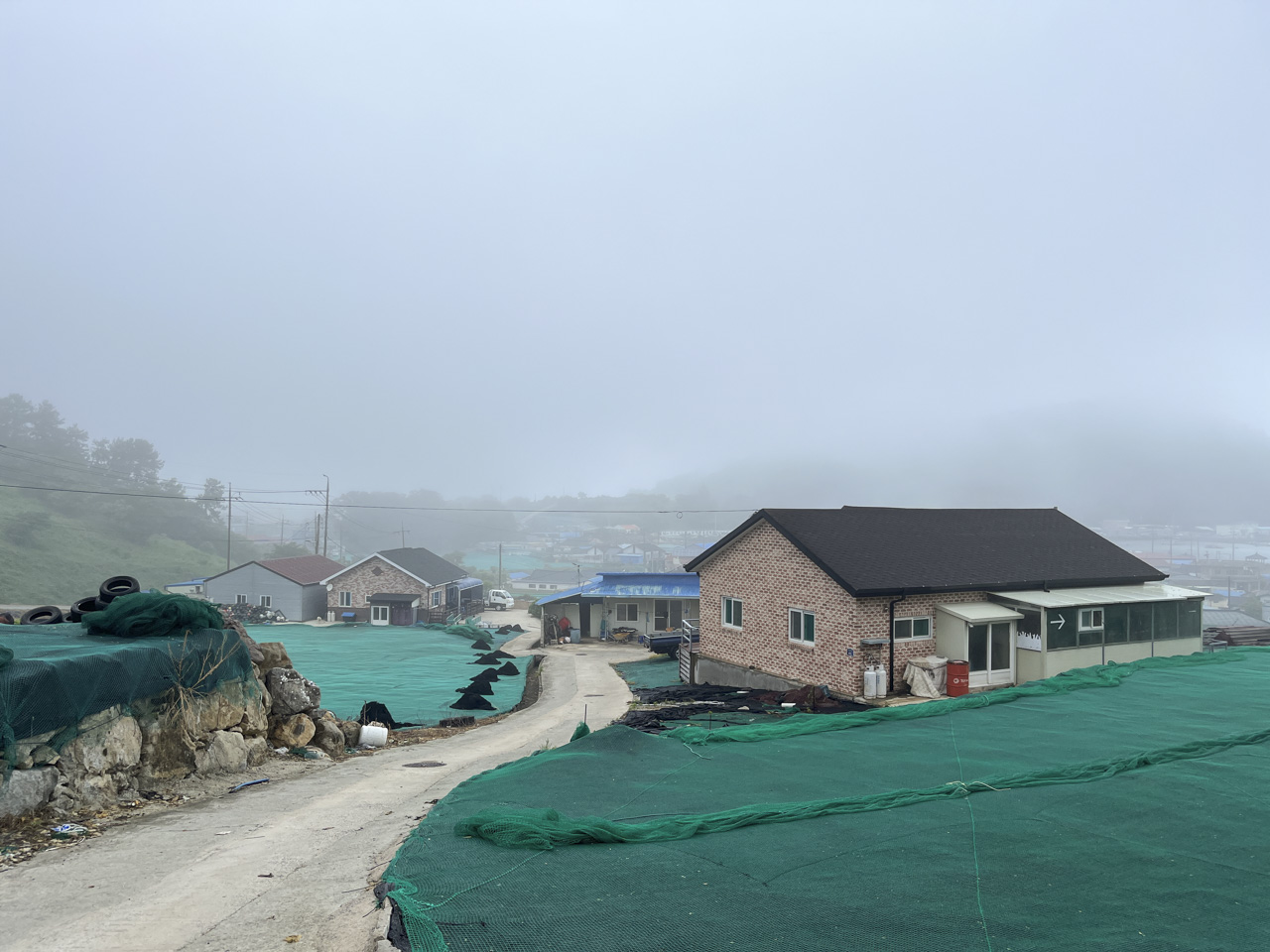
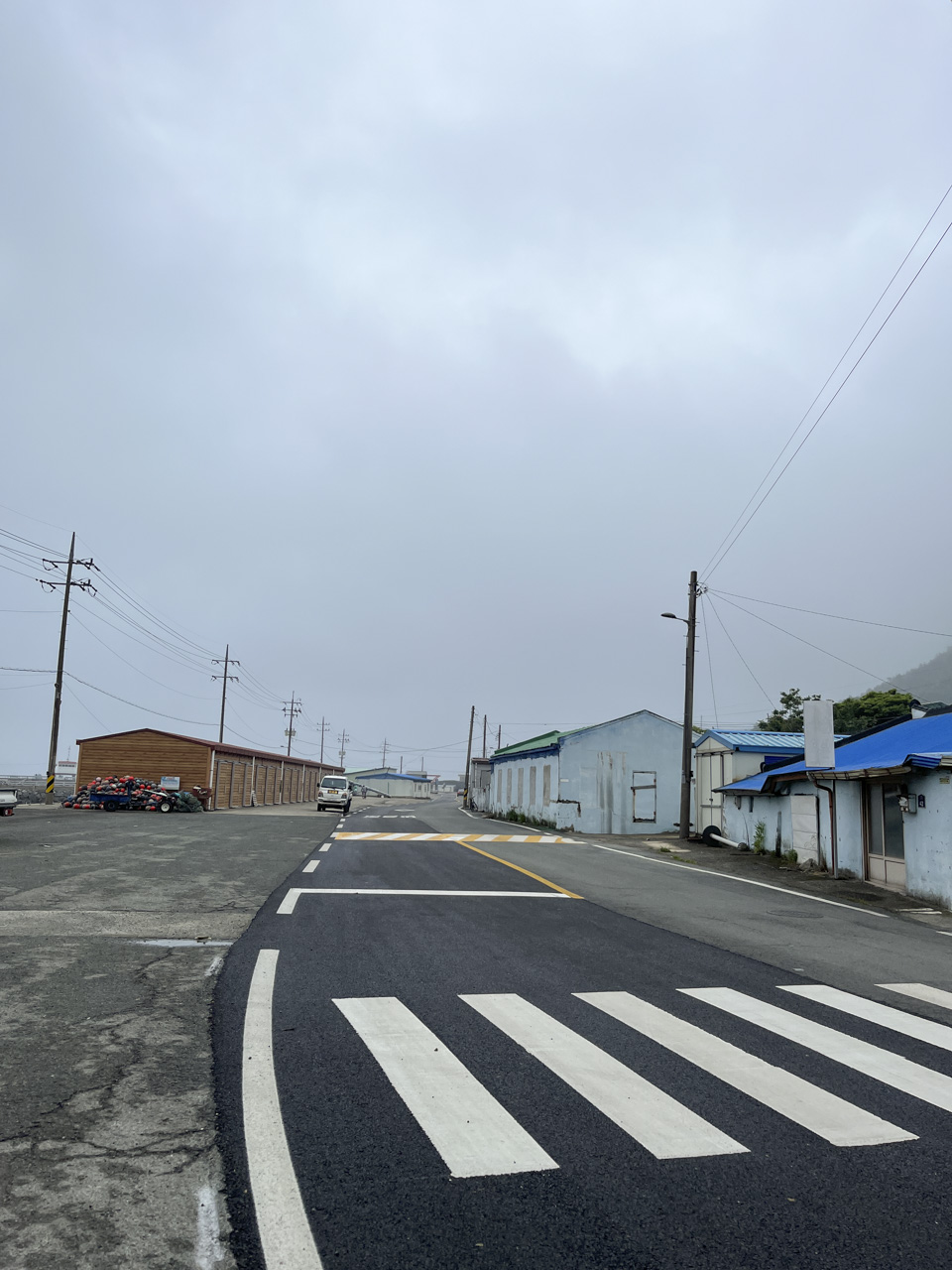
Seasonal Workers, Land, and the Sea
This kelp farm is constructing a form of a relationship between land and the sea which invites seasonal workers to come. The term seasonal worker referred to my conversation with I, Marco, and Vincent on how we could define the situation where the island has the peak season people to come but other than tourism and centered on kelp farm. Vincent mentioned that those workers come as seasonal workers that only come in certain seasons–kelp farm season. I do agree with his suggestion.
The presence of seasonal workers created a seasonal infrastructure. There were food trucks that only served Thai ingredients, snacks, and staple food. This is caused by the number of Thai workers being higher other than Russian or Vietnamese workers. Not only Thai food trucks but also, I got a chance to taste Thai cuisine during my work which was brought by Thai workers. They brought their cook every day to the farm in a small lunch box. For them, bringing their favorite food is a way to comfort their tongue and gain mood for the rest of the day. Even though Wangjangnim had never been to Thailand, he found himself that he does not like Thai food through his Thai workers. He tried their food and the does not like it all. This situation showed how the seasonal worker contributed to the cultural migration.
Seaweed becomes a commodity that migrated all over the world and then process into foods, snacks, medicines, cosmetics, etc. As well as farmers here, have the knowledge to process seaweed into products and food because it is part of their business. Unfortunately, even though Indonesia is one the biggest seaweed producer in the world but I feel distant from the knowledge of seaweed. I can not recognize what is food made from seaweed. I do not have any memories of the seaweed food culture in Indonesia. Can not be denied, how seaweed has the charm to mobilize people, build an industrial island, and also construct a food culture. The contrary happened with the number of younger generation who are working on this kelp farm, or being on this island. The younger generation decided to go to the city for pursuing a degree, get a job, or live with their families. I was wondering, what will happen if there are no younger generations who will do this farming? Also, the same question goes to me, what will happen if I am not learning about what the elders do?
Text and images by Gatari Surya Kusuma
